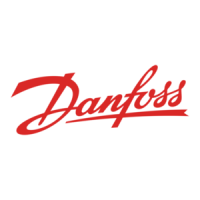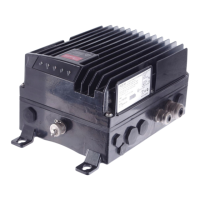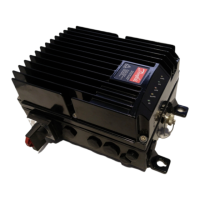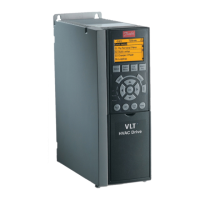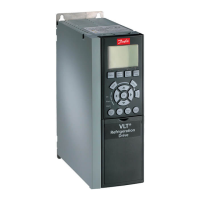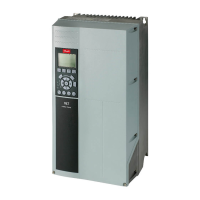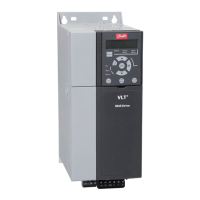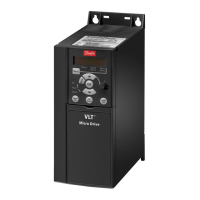VLT
®
FCD Series
Programming, FCD
300
feedback signal varies by a higher frequency than 1.6
Hz, it will be dampened by the lowpass filter.
445 Flying start
(FLYINGSTART)
Value:
✭Off (DISABLE)
[0]
OK - same direction
(OK-SAME DIRECTION)
[1]
OK - both directions
(OK-BOTH DIRECTIONS)
[2]
DC brake and start
(DC-BRAKE BEF. START)
[3]
Function:
This function makes it possible to ’catch’ arotating
motor shaft, which is no longer controlled by the
frequency converter, e.g. because of a mains
drop-out. The function is activated each time a start
command is enabled. For the frequency converter
to be able to ’catch’ the rotating motor shaft, the
motor speed must be lower than the frequency
that corresponds to the frequency in parameter
202 Output frequency, high limit, f
MAX
.
Description of choice:
Select Disable [0] if this function is not required.
Select OK - same direction [1] if the motor shaft
is only able to rotate in the same direction when
cutting in. OK - same direction [1] should be
selected if in parameter 200 Output frequency range
a selection has been of Clockwise only .
Select OK - both directions [2] if the motor is able
to rotate in both directions when cutting in.
Select DC brake a nd start [3] if the frequency converter
is to be able to brake the motor using the DC brake
first, followed by start. It is assumed that parameters
126-127/132 DC brake are enabled. In the case
of higher ’Windmilling’ (rotating motor) effects, the
frequency converter is not able to ’catch’ arotating
motor without selecting DC brake and start .
Limitations:
- Too low inertia will lead to load acceleration, which
can be dangerous or prevent correct catching of a
rotating motor. Use the DC brake instead.
- If the load is driven, e.g. by ’Windmilling’
(rotating motor) effects, the unit may cut
out because of overvoltage.
- Flying start does not work at lower values
than 250 rpm.
451 Speed PID feedforward factor
(FEEDFORWARD FACT)
Value:
0 - 500 %
✭ 100 %
Function:
This parameter is only active if in parameter 100
Configuration the selection made is Speed regulat ion,
closed loop. The FF function sends a larger or smaller
part of the reference signal outside the PID controller
in such a way that the PID controller only has an
influence on part of the control signal. Any change
to the set point will thus have a direct effect on the
motor speed. The FF factor provides high dynamism
when changing the set point and less overswing.
Description of choice:
The required % value can be selected in the interval
f
MIN
-f
MAX
. Values over 100 % are used if the
set point variations are only small.
452 Controller range
(PID CONTR. RANGE)
Value:
0 - 200 %
✭ 10 %
Function:
This parameter is only active if in parameter
100 Configuration the selection made is Speed
regulation, c losed loop.
The controller range (bandwidth) limits the output from
the PID controller as a % of motor frequency f
M,N
.
Description of choice:
The required % value can be selected for motor
frequency f
M,N
. If the controller range is reduced the
speed variations will be less during initial tuning.
455 Frequency range monitor
(MON. FREQ. RANGE)
Value:
Disable
[0]
✭Enable
[1]
Function:
This parameter is used if warning 35 Out of frequency
range must be turned off in the display in process
✭
= factory setting. () = display text [] = value for use in communication via serial communication port
MG.04.B7.02 - VLT is a registered Danfoss trademark
75
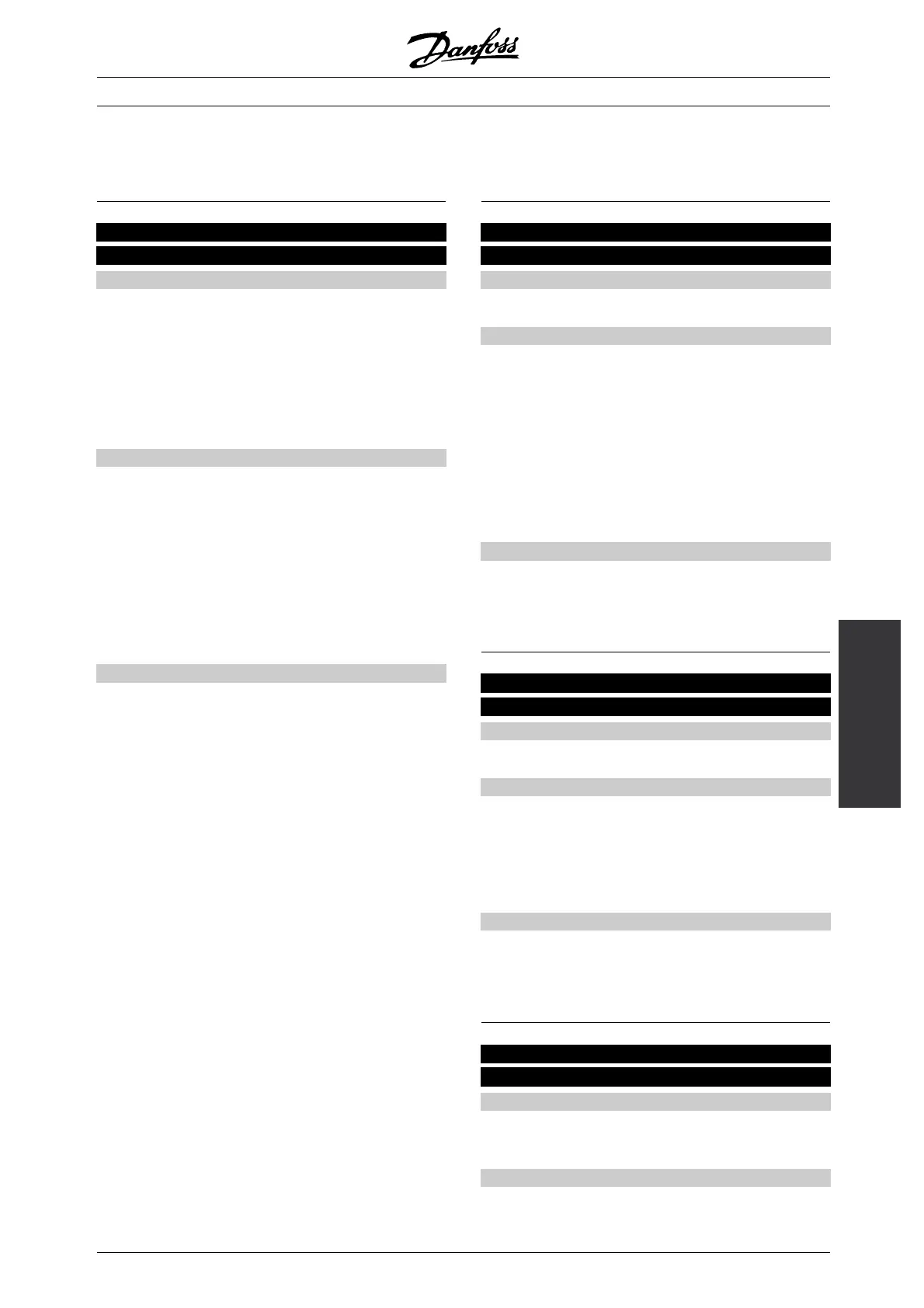